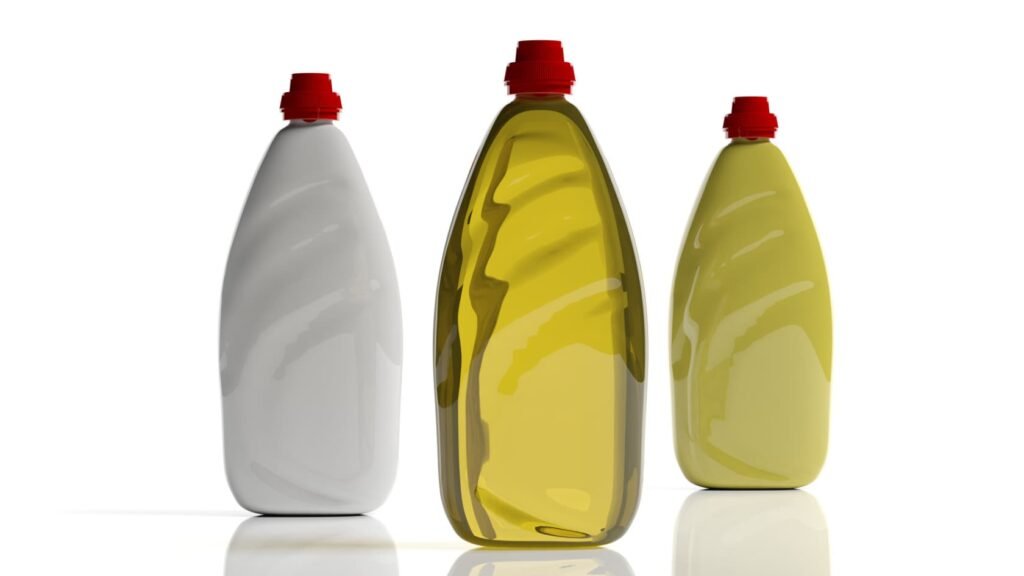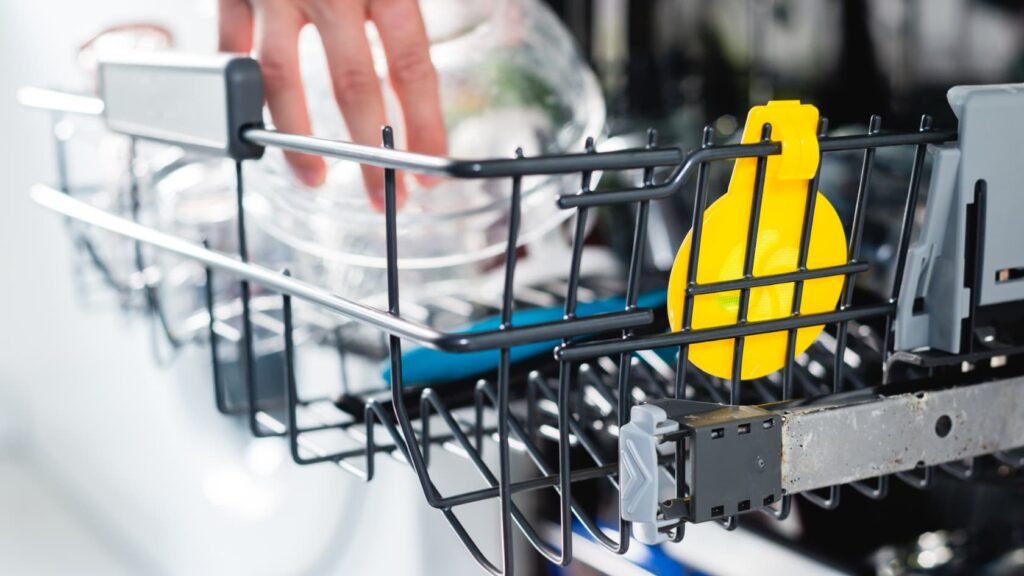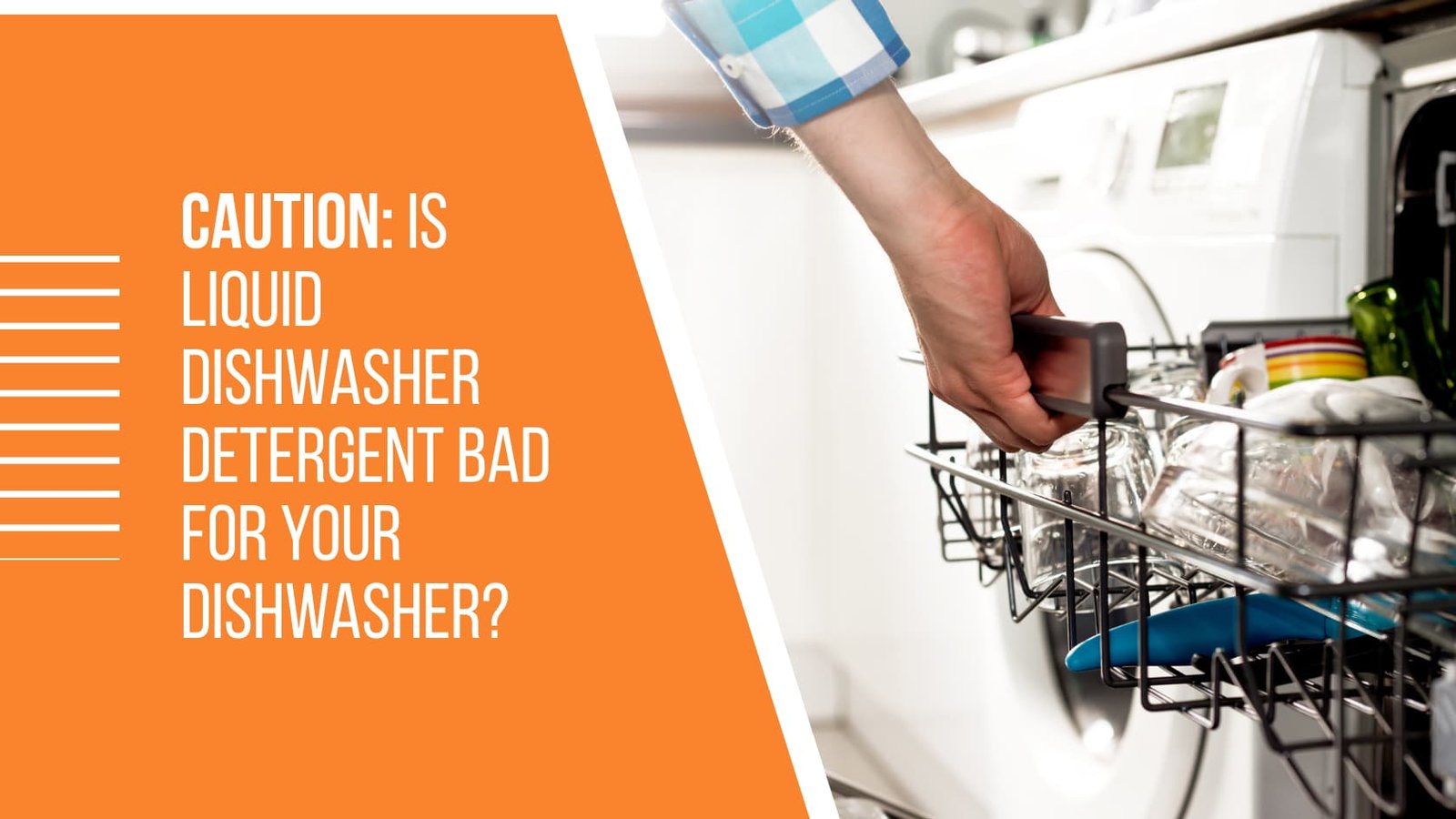Is liquid dishwasher detergent bad for your dishwasher? Are you unknowingly harming your dishwasher when you use it?
The composition and characteristics of liquid dishwasher detergents make them stand out among the different types of dishwasher detergents available.
But this uniqueness may come with potential risks that could affect the performance and lifespan of your dishwasher.
In this article, we will explore the specific qualities of liquid dishwasher detergents and their potential impact on your dishwasher. We will also provide recommendations for the best detergents to use and how to deal with detergent mishaps.
Liquid dishwasher detergents consist of a unique composition that sets them apart from dishwasher pods, powders, and tablets.
This distinction can potentially lead to issues such as excessive suds, which may harm the dishwasher and affect its performance.
As we navigate through the topic, we will also explore eco-friendly detergent options and safe alternatives to liquid dishwasher detergent.
By the end of this article, you will make an informed decision about the best dishwasher detergent for your needs.
Some links in this post are affiliate links, meaning, at no additional cost to you, we may earn a commission if you click through and make a purchase. As an Amazon Associate, I earn from qualifying purchases.
What Makes Liquid Dishwasher Detergent Different?

When choosing a dishwasher detergent, one of the options on the market is liquid dishwasher detergent.
It stands out from pods, powders, and tablets due to its unique formulation and characteristics.
Liquid detergents are designed to be enzyme-based cleaners. This ingredient makes them particularly effective at breaking down food particles and organic materials without the use of bleach.
The lack of bleach in liquid detergents means they’re a gentler option for cleaning dishes.
But they may sometimes struggle with tough stains like those left by tea and coffee.
For households concerned about the impact of bleach on colored dishes, liquid detergents present a less aggressive alternative that can still perform well in most cleaning scenarios.
Composition of Liquid Dishwasher Detergents
Liquid dishwasher detergents are known primarily by their enzyme-based composition.
Enzymes in these detergents work to dissolve and break down food remnants and other organic stains.
Their liquid form allows them to mix easily with water, ensuring a more uniform distribution throughout the dishwasher.
This can lead to improved cleaning effectiveness as the detergent is able to reach all parts of the dishwasher and the dishes themselves.
But these detergents do not contain bleach, which is known for its disinfectant properties and ability to tackle more stubborn stains.
Comparison with Pods, Powders, and Tablets
When comparing liquid detergents to other dishwasher detergent forms like pods, powders, and tablets, there are several factors to consider. These factors include their cleaning power, convenience, environmental impact, cost, and suitability for different types of water.
| Feature | Liquid Detergent | Pods/Tablets | Powder Detergent |
|---|---|---|---|
| Main Ingredients | Enzymes (no bleach) | Enzymes, bleach agents, sometimes rinse aids | Enzymes, bleach agents |
| Cleaning Power | Effective on organic stains | Highly effective, best overall performance | Effective, best with hard water |
| Convenience | Easy to measure, potential for spillage | Most convenient, pre-measured, no spillage | Must measure, potential for spillage |
| Environmental Impact | Higher due to bulky plastic bottles, higher transport emissions | Moderate; concerns over packaging waste | Lower; often comes in recyclable cardboard |
| Cost | Generally more affordable | More expensive due to convenience and effectiveness | More affordable than pods, less than liquid |
| Suitability | Works well with soft water, hot or cold | Depends on water type; some designed for hard or soft water | Best with hard water and hot temperatures |
Pods and tablets
Pods and tablets represent the most convenient option, as they are pre-measured and eliminate the risk of spillage that can come with liquids or powders.
They often include additional cleaning agents like bleach and built-in rinse aids that can enhance the cleaning performance.
However, this convenience comes at a higher price and may carry more packaging waste, which could be a concern for the environment.
Powder detergent
Powder detergents, on the other hand, are similar to liquid detergents in that they require measuring.
But they tend to work better with hard water and higher temperatures.
They often combine enzymes with bleach for a potent clean and are typically packaged in recyclable cardboard. This approach makes them a more eco-friendly choice.
Can Liquid Dishwasher Detergent Harm Your Dishwasher?

Liquid dishwasher detergent has been the subject of debate for years due to concerns that it can negatively affect the performance and durability of appliances.
Although dishwashers are designed to work with a variety of detergents, using the appropriate type for your machine and water conditions is key to avoiding issues.
Let’s explore the potential impacts of liquid dishwasher detergent on your appliance.
Potential Issues Caused by Liquid Detergents in Dishwashers
One of the primary concerns with liquid dishwasher detergent is residue build-up.
Over time, these detergents may leave behind residues that accumulate within the dishwasher.
This can lead to clogs in the machine’s components, such as the spray arms or filter, resulting in reduced efficiency and effectiveness of the cleaning cycles.
Here are specific issues that could arise
Residue Accumulation: Each cycle could leave small amounts of residue, gradually building up and affecting water flow and heating elements.
Spray Arm Blockages: Critical for even water distribution, the spray arms can become blocked with residue and impede the cleaning process.
Filter Concerns: If not regularly cleaned, filters can become clogged more quickly due to residue, leading to poor water quality and reduced cleaning power.
Adhering to expert and manufacturer recommendations can help mitigate the risks associated with residue build-up.
The Problem with Suds
It’s a common misunderstanding that more suds equal a better clean.
But in the realm of dishwashers, excessive sudsing can be detrimental.
Regular liquid dish soap, which is not designed for use in dishwashers, can create a foam party that the appliance is not equipped to handle.
This is different from liquid dishwasher detergent, which should be low-sudsing by design, but issues can still arise if misused.
The suds overflow can have several consequences, including
Cleaning Interference: High suds can prevent thorough cleaning by encapsulating dirt and grime, rather than allowing it to be rinsed away.
Mechanical Stress: Suds can overflow, leading to potential leaks and mechanical issues that stress the dishwasher’s components.
Sensor Malfunctions: Modern dishwashers often rely on sensors to gauge water clarity; excess suds can trick these sensors, resulting in incomplete cycles.
To prevent suds-related troubles, it’s vital to use specifically designed liquid dishwasher detergent and avoid substituting it with traditional dish soap.
In areas with hard water, liquid detergents may also fall short.
They can be less effective than powders or tablets in dealing with the mineral deposits hard water leaves behind.
As a result of this inefficiency, mineral buildup can occur within the dishwasher, eventually compromising its cleaning ability and requiring more frequent descaling and maintenance.
How Excessive Suds Can Affect Dishwasher Performance
Here’s a breakdown of the problems too much foam can cause
Reduced Cleaning Efficiency: Excessive suds act as a barrier between the water and dirty dishes, lessening the dishwasher’s capacity to tackle grime.
Drainage Problems: Overflowing suds can clog the drainage system, hindering water from properly leaving the appliance. This could lead to unsightly water spots, residues, and even the growth of mold.
Mechanical Issues: Suds that seep into mechanical parts may bring about corrosion or electrical problems, potentially resulting in hefty repair bills.
Sensor Interference: Modern dishwashers with sensors to check water clarity could be duped by too many suds. This can cause the machine to run unnecessarily long cycles, or worse, not complete them properly.
Guidelines from Dishwasher Manufacturers

It’s imperative to consult your dishwasher’s user manual for detailed instructions on recommended detergent types.
Manufacturers have done extensive testing with their machines and thus offer tailored advice which often includes
Detergent Type: Each dishwasher may have an optimal type of detergent. Some work best with powders, while others are designed for liquid detergents or single-use pods.
Quantity: The correct amount of detergent can vary. Too much can cause the problems detailed earlier while too little won’t get dishes clean. The manufacturer’s guidelines generally provide instructions for dosing according to the level of water hardness and load size.
Environmental Impact: Eco-friendliness is an increasing concern for many manufacturers and consumers, with some companies recommending more sustainable options.
Pros and Cons of Different Detergent Forms
Each type of dishwasher detergent – liquid, powder, and pods – has its advantages and disadvantages, which can influence your choice dependent on your specific needs
| Detergent Type | Pros | Cons |
|---|---|---|
| Liquid Detergents | Often the most budget-friendly and effective on organic stains | Can leave residues; higher environmental impact due to plastic packaging |
| Powder Detergents | Better for hard water; Eco-friendly in recyclable packaging | Requires precise measurement to avoid waste |
| Pods/Tablets | Convenient with pre-measured doses; Often contain a blend of cleaning agents for tough stains | More expensive; Additional packaging waste |
How to Deal with Detergent Mishaps
Dealing with detergent mishaps in your dishwasher requires quick and careful action to prevent damage to your appliance.
Here’s what to do if you accidentally use the wrong type of detergent or if excessive suds occur.
Steps to Take if the Wrong Detergent is Used
In case the incorrect detergent is accidentally used in your dishwasher, it’s imperative to act promptly.
Here are the steps you should follow to address the problem
Stop the Dishwasher: As soon as you realize that the wrong detergent has been used, halt the cycle immediately. This will help prevent any overflow that could cause damage to your kitchen or the dishwasher itself.
Remove Excess Suds: Open the dishwasher carefully to prevent suds from spilling out. Use a cup or a small container to scoop out the excess foam. Follow up with a damp cloth to wipe the interior surfaces of the machine.
Run a Rinse Cycle: Once the bulk of the suds are removed, set your dishwasher to run a rinse cycle. Do not add any more detergent during this process, as this will help clear away any residual suds and detergent remains inside.
Clean the Filter: After the rinse cycle, inspect and clean your dishwasher’s filter. It may have captured detergent residue or debris during the mishap. Cleaning it as per the manufacturer’s instructions will help maintain your dishwasher’s optimal performance.
Tips for Cleaning Up Excessive Suds and Preventing Damage
When excessive suds buildup becomes a concern, here are some practical tips to defuse the situation and prevent damage to your dishwasher
Use Salt or Oil: Spreading table salt over the suds inside the dishwasher can aid in breaking them down. As an alternative, a small amount of cooking oil can reduce sudsing. These substances counteract the soapy bubbles and hasten their dissipation.
Ventilation: In the case of spillover, open your windows or use a fan to ventilate the area. This will help clear the overflowed suds from the kitchen floor efficiently and reduce the risk of accidents.
Prevent Future Mishaps: Preventive measures are key. Label and store dishwasher detergent and hand dishwashing soap separately and distinctly to avoid future confusion. Additionally, make sure all household members know which products are designed for dishwasher use.
Consult the Manual: Your dishwasher’s user manual is a valuable resource for manufacturer-specific advice. Resort to it for further guidance on handling detergent mishaps tailored to your particular model.
Alternatives to Liquid Dishwasher Detergent
There are numerous alternatives to traditional liquid dishwasher detergents.
These options are not only sustainable but often come with the added benefit of being cost-effective.
Here is a rundown of some eco-friendly selections you could consider:
Eco-friendly Detergent Options
Biodegradable Detergents: When choosing a detergent, keep an eye out for products labeled as ‘biodegradable’. These detergents are designed to break down more naturally in the environment. This makes them a responsible choice for conscious consumers.
Plant-based Detergents: Another great selection is detergents derived from plant-based sources. Generally containing fewer harsh chemicals, these detergents can be as potent as traditional ones without the environmental toll.
Zero Waste Packaging: Packaging contributes a significant amount to environmental waste. Opt for detergents with zero waste or recyclable packaging to curb plastic use and contribute less to landfill waste.
When and How to Safely Use Alternatives
Adopting new cleaning solutions requires some considerations to maintain the effectiveness of your dishwasher while being eco-friendly
Test Small Batches: Before embracing a new detergent fully, try it out in a small batch. This preliminary step will help you assess its cleaning capabilities and ensure that it doesn’t leave behind unwanted residue on your dishes.
Avoid Certain Mixtures: When experimenting with DIY recipes, avoid combining dangerous ingredients – for example, vinegar mixed with bleach creates toxic gases.
Check Dishwasher Compatibility: Not all detergents are suitable for every machine. Consult your dishwasher’s manual or check with the manufacturer to determine if the alternative cleaning agent you’re considering is a good match for your appliance.
Use Rinse Aids: If you notice spots or residue after switching to an alternative detergent, consider incorporating a natural rinse aid such as white vinegar. This can be added to your dishwasher’s rinse aid compartment and can help in leaving your dishes sparkling clean.
Conclusion
When choosing a dishwasher detergent, it is essential to weigh the pros and cons of liquid versions.
While liquid detergents excel at tackling organic material and are cost-effective, they carry the risk of leaving residue that can build up over time.
Pods, powders, and tablets offer advantages such as ease of use, efficacy in different water conditions, and in the case of powders, an environmentally friendly footprint.
It’s imperative you opt for products expressly designed for dishwashers to sidestep issues like damaging over-foaming.
In instances of detergent overuse, swift and thorough cleaning is key to prevent harm to your dishwasher.
Regardless of your choice, the correct use ensures a seamless rinse cycle, offering dishes that are as spotless as they are safe.

Pazi Mboh, our Home Efficiency Advocate, is dedicated to promoting sustainable dishwasher use. His tips on energy and water efficiency not only help the environment but also save on your bills, making his guidance invaluable for eco-conscious households.





